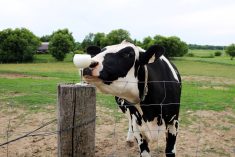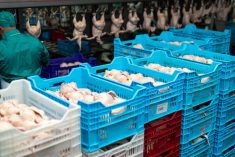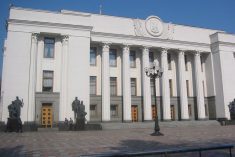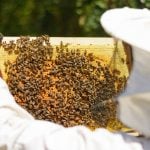A free trade agreement between Canada and Ukraine that’s expected to benefit Canada’s livestock sectors, among others, goes to the two countries’ parliaments for approval after its signing Monday.
Prime Minister Justin Trudeau and Trade Minister Chrystia Freeland signed the Canada-Ukraine Free Trade Agreement (CUFTA) Monday in Kyiv. CUFTA negotiations wrapped last July under the previous Harper government.
Canada and Ukraine must each go through their “respective domestic legislative processes” to ratify and implement the deal now that it’s been signed, the government said.
Read Also
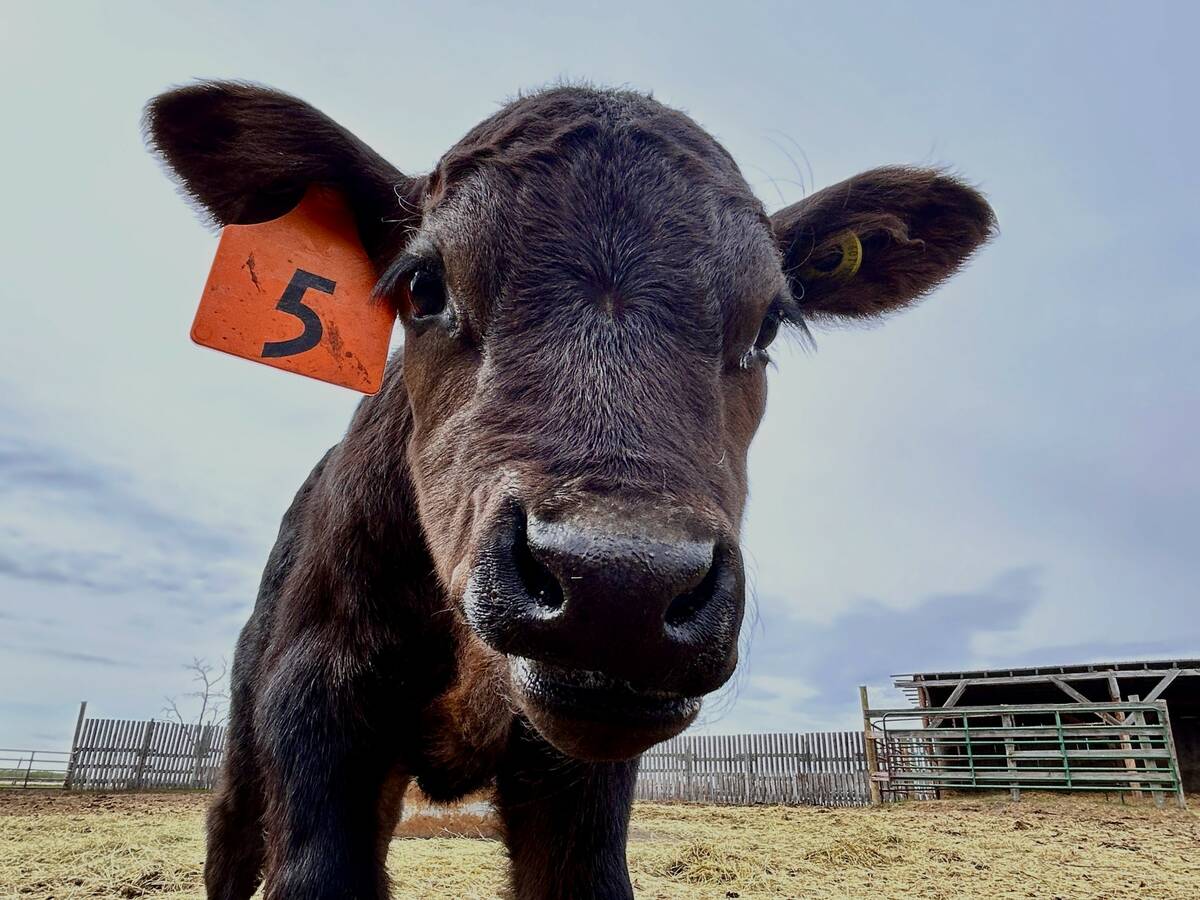
Health Canada stops sales of coccidiosis medication Deccox on procedural issue
Deccox, a medication to prevent coccidiosis in calves and other livestock, is temporarily off the market after Health Canada issued a stop sale order earlier this month.
The signing follows an uptick in Canada/Ukraine bilateral trade, which reached $278 million in 2015, up 13.9 per cent from 2014, but down from $322 million in 2013.
Canada’s exports alone to Ukraine totalled over $210 million in 2015, including pharmaceuticals, fish and seafood, and coking coal, the government said. Imports from Ukraine in 2015 reached over $67 million, including fertilizers, iron and steel, and anthracite coal.
Canadian trade officials have previously described Canada’s trade with Ukraine as as “modest commercial relations,” and noted the Ukrainian economy “in general remains underdeveloped, weak, energy-inefficient and resource-based, yet… quite diversified.”
Listing “sector-specific” opportunities and challenges for agriculture and foods, trade officials have said the “greatest opportunities” exist for beef and dairy cattle producers, sheep and goat producers and beef, pork and poultry packers and processors.
In their 2015-17 market access plan, published last year, staff at Global Affairs Canada also noted “significant opportunities for the full range of agricultural machinery” such as zero-till equipment, along with artificial insemination and “livestock management” technologies.
“Political strife” in Ukraine “may affect the agriculture and processed foods sector, but to a lesser extent than other sectors such as oil and gas,” department staff noted.
Global Affairs staff have also noted that while Ukraine has a long history of doing business with other former Soviet countries, those “historic trade linkages” have started to break down, due mainly to Russia’s annexation of Crimea and the formation of the Russian-dominated Eurasian Customs Union.
Thus, the government said, Ukraine’s diversification of trade markets may create opportunities for Canadian companies, particularly in food and agriculture as well as manufacturing and aerospace.
The two governments on Monday also announced an agreement between Kyiv’s Borsch Ventures, E-Farmer and the International Finance Corporation to invest $500,000 in setting up eFarmer 360°, a platform that addresses farm business management needs of farmers and credit risk assessment requirements of banks.
The agreement and two other deals signed Monday “are proof of the ever-growing commercial ties between Canada and Ukraine, and highlight the great potential of CUFTA,” the government said in a separate release. — AGCanada.com Network





